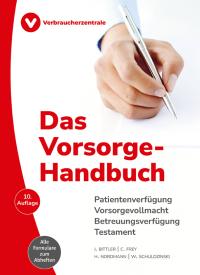At first it will be ascertained with a so-called initial examination whether the refugee has some communicable diseases. Normally the rib cage will be x-rayed to detect tuberculosis requiring treatment. If the people are under the age of 15 or pregnant they make blood or skin tests instead. Besides that asylum seekers have a claim for a medical treatment in case of health problems. This is aligned to legal regulations in the Asylum seeker payment law (Asylbewerberleistungsgesetz).
However, in the first 15 months while their stay you get less payments than people in the state-mandated health insurance.
Acute diseases and pains will be treated with the necessary medicines and dressings. In addition to that, services can be granted in particular cases if they are vitally. Pregnant women and women in childbed have a comprehensive claim for medical and nursing care. This includes medical care, help from a midwife, pharmaceuticals, surgical dressings and remedies. Asylum seekers are also entitled for medical check-ups and vaccinations. On the other hand dentures are only granted, if it cannot be postponed for medical reasons.
After 15 months asylum seekers have the same claim for medical care as welfare recipients, so there will be no difference between them and legally insured persons. Asylum seekers then get an electronic health card.
This means: After this 15 months asylum seekers also have to pay co-payments for health insurance services – up to the limit. The limit is 2 percent of the annual gross income. For chronically ill insured persons, who are permanently treated because of the same serious disease, the limit is lowered to 1 percent.
To determine this limit, the standard rate of the head of household is considered for asylum seekers as well as for welfare recipients. The standard rate is 416 Euro per month (4.992 Euro per year). The co-payments per year are 99,84 Euro for injured persons without a chronic disease and 49,92 Euro for chronically ill persons.
It is recommended to keep all the co-payment receipts. If the amount of 99,84 Euro (or 49,92 Euro) is reached, the health insurance has to certify that the insured person is exempted from co-payments for the rest of the year.
Who is responsible – and how does the medical care takes place?
When refugees arrive in Germany, first the federal states assume the provision of healthcare. This applies to the whole stay in the so-called reception centres and in the central accommodation facilities of the federal states.
As soon as the asylum seekers are assigned to the municipalities, the congregation bears the costs. The authorities rule how they ensure the care. In order that asylum seekers can see a doctor, they need the so-called Certificate of Eligibility or medical certificate (Berechtigungsschein and Behandlungsschein). You’ll get this form from the competent authority or mostly from the locally reception centre, too. The authority grants the medical treatment and determines the scope. Therefore it is necessary to take note of the validity of the medical certificate. In addition to that further service restrictions can be noted or concrete practitioners can be specified.
Often the offices issue the medical certificates for one quarter. Asylum seekers then can go to a doctor who is licensed for the treatment of refugees (vertragsärztliche Versorgung). The doctor then decides on the necessary treatment and can issue referrals. For medicines persons in need for treatment get a prescription, which they can redeem in a pharmacy.
There are no co-payments in those cases. The doctor in charge can also prescribe remedies and aids or a hospital stay. The authority must first agree to these prescriptions. The locally social welfare offices can also obtain a medical report for such decisions. Thereby and due to the service restrictions by the Asylum seeker payment law (Asylbewerberleistungsgesetz) and the high number of refugees necessary treatments can be significantly delayed or completely omitted.
Health insurance card for refugees, too?
Some federal states made an agreement, to issue health insurance cards to asylum seekers in the first 15 months. This makes the regular access to the health care possible. For that every municipality has to join the contract. The health insurance card is given earliest when the refugee is housed in a municipality.
Since it takes some time until the card is issued, you have to go to the local social welfare office first. There the people seeking help get a provisional so-called letter of accounting (Abrechnungsschein). The electronic health insurance card will be sent to you directly by the health insurance. You are not free to decide to which health insurance you want to go. Each municipality is served by a statutory health insurance.
Asylum seekers then receive as nearly the same services as people who are legally insured. Only with a small selection the municipality still has to agree.
In case of emergency: Refugees can use the organised emergency service with the standard medical certificate or they can go to a doctor without a medical certificate and hand it in within ten days. In life-threatening situations the respective payers bear the costs of an emergency treatment in a hospital.






